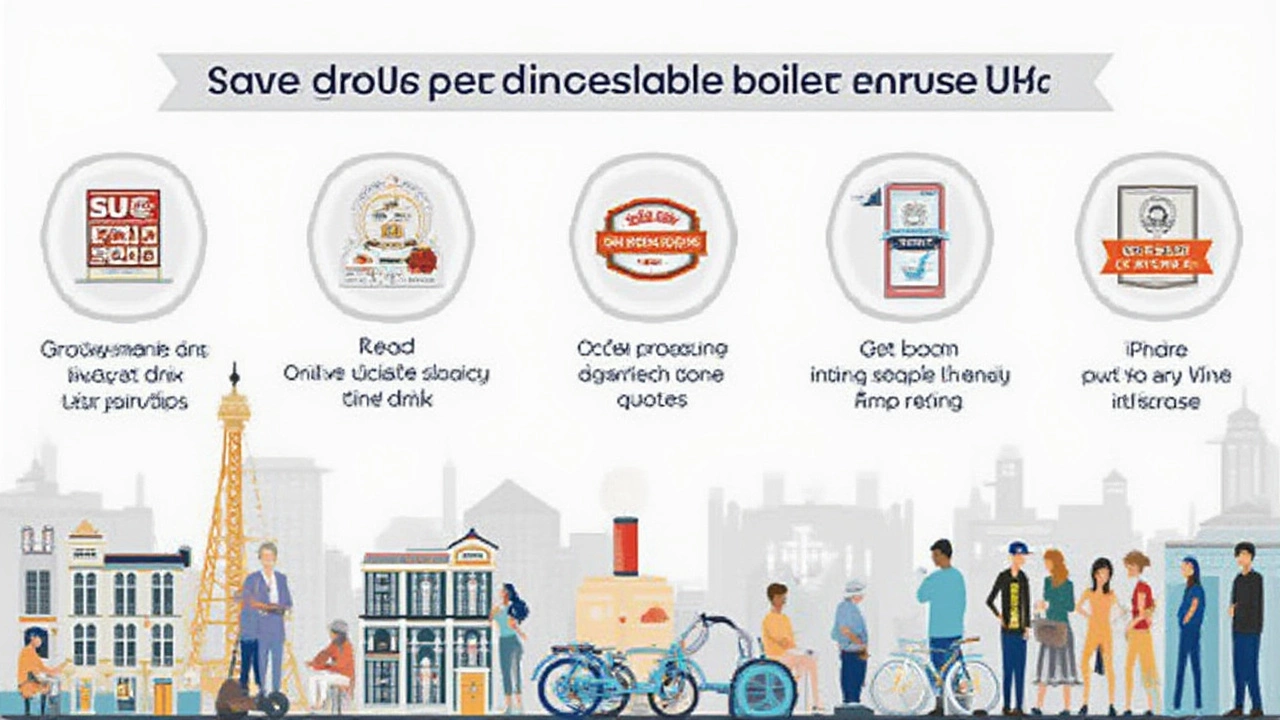Stuck in the cold and your boiler just decided today was the day? Boilers have a sneaky way of quitting right before you need them most—usually in the dead of winter or that one rainy week nobody was ready for. The scramble for answers kicks in: “Who on earth can service my boiler?” It’s one of those questions with an answer that’s more complicated than you might think. Not just anybody with a wrench and good intentions should touch your heating system. The stakes are high, and mistakes can mean more than just a chilly evening: leaks, carbon monoxide, and sky-high repair bills are all on the table when a boiler’s in the wrong hands.
Who’s Actually Qualified to Service a Boiler?
Maybe your neighbor says he once fixed his aunt’s heater, or Uncle Jerry flashes you a YouTube tutorial. Sounds tempting, especially if you’re staring down a freezing weekend. But here’s the thing: your boiler is not a DIY project for casual tinkerers. Only certain professionals are legally allowed to work on boilers, and there are good reasons for those rules.
For gas boilers in the UK, the must-have qualification is clear: Gas Safe registered. That’s not just paperwork—engineers on this register are trained to handle gas appliances safely. If you’re in the US, look for boiler technicians with relevant state or local licenses, and ideally, NATE (North American Technician Excellence) certification. Many regions demand even more, like specific licenses for oil, electric, or LPG (liquefied petroleum gas) boilers. So, that family friend with good intentions? He’s not just risking your boiler—he’s risking your whole home. Insurance claims often get denied if an unlicensed person caused the damage.
Beyond the paperwork, experienced boiler engineers usually work for specialist heating companies or major service providers. These companies carry liability insurance and follow the latest technical standards. National chains often run thorough background checks and provide customer support if things go wrong, but local independents sometimes offer quicker responses and friendlier prices. Checking reviews—actual ones, not just a couple of sunny five-stars—gives you a sense of reliability, how they handle emergencies, and whether they arrive when they say (not three days later, while you’re wrapped in blankets). Also, check for manufacturer partnerships. Some brands train and certify service techs themselves, and using one can protect your warranty.
Watch out for red flags when hiring: vague credentials, cash-only offers, or anyone who dodges your questions about qualifications. If it’s a legit company or engineer, they’ll proudly show their ID and certifications and explain what the job involves. Always get a written estimate before the job begins. And here’s a little-known fact: manufacturer warranties sometimes require you to use certified pros every year, or you’re left high and dry if something goes wrong. Don’t gamble with that.
What to Expect From Professional Boiler Service
Ever wondered what actually happens during a boiler service? It’s not just a bit of dusting and a quick look under the hood. Proper boiler servicing is a multi-step process, and every step has a reason. Let’s break it down so you know what you’re really paying for—and why skipping it can cost you more down the road.
First, the pro will show you their credentials and may ask you a few questions about your boiler’s history—odd noises, leaks, or any recent odd behavior. After that, the real checklist begins. Every certified technician follows traditional steps laid out by standards bodies or manufacturers (no winging it):
- Visual inspection: Looking for obvious problems, corrosion, leaks, and checking the flame. Gas flame color tells a story: yellow may mean trouble, blue is usually good.
- Control check: Testing thermostats, safety devices, and pressure levels. Faulty controls or pressure can lead to sudden shutdowns or even hazardous situations.
- Component testing: This might include cleaning burners, checking heat exchangers, and testing seals. Loose or worn parts can go undetected by non-experts, but they’re top suspects when breakdowns happen.
- Gas and pressure measurements: A vital part of the process for gas boilers. They’ll use a manometer or similar tool to ensure gas flow is within manufacturer specs. Wrong pressure can cause unsafe operation—or just rack up your gas bill.
- Flue and ventilation: Ensuring exhaust gases are safely vented, carbon monoxide isn’t escaping, and there is no blockages or leaks. Faults here can be deadly, not just inconvenient. Most boiler disasters happen because this step was skipped or poorly done.
- Paperwork: Good engineers issue a service record or certificate, which you should keep for insurance, selling your house, or warranty disputes. Don’t lose that slip—it’s your proof things were done properly.
Some top-dollar services bundle in system cleaning, chemical flushes, or water treatments to help your boiler run longer. Others use smart detectors to spot issues before they spiral into full-on failures. But even a routine check, done by a trained eye, can alert you to a leaking valve or burning circuit long before your nose picks up trouble. Boiler service isn’t about what’s broken today—it’s about avoiding bigger bills (and cold showers) a few weeks or months from now.

Signs You Need Boiler Service (and Not Just a Quick Fix)
Most folks only think about their boiler when there’s an obvious issue: no heat, strange noises, pilot light out, or an error code blinking from that little screen. These are the big clues, but honestly, your boiler often ‘talks’ to you before things get urgent. Catching these subtler warnings means you act before it’s a crisis.
Listen for new sounds. A healthy boiler shouldn’t rattle, screech, clang, or whistle. Sure, there are normal startup sounds, but knocking, gurgling, or constant whooshing means sediment could be building up or something’s loose inside. Next, watch for leaks—any water, no matter how small, deserves attention. Even minor drips add up: leaks waste gas or water, corrode parts, and can cause structural damage if left unchecked.
Keep an eye on your heating and hot water. Are radiators taking ages to heat up or staying lukewarm while the boiler works overtime? This kind of inefficiency often points to blockages, failing pumps, or sludge buildup—especially if your system’s a few years old. Can you smell something odd? Burning, metallic, or sulfur-like smells often mean electrical or burner problems, and modern boilers are designed to stop right away if something’s wrong. Don’t ignore chemical smells near the flue. They’re indicators of a potentially dangerous emission leak, so open windows and call a pro immediately.
Frequent pressure drops, error codes, or constant reset button pushing? These are not “just quirks” you have to live with. A healthy boiler should hold consistent pressure and only rarely need a reset. If you’re topping off pressure every week, or waiting ages for hot water, that’s a clear signal to call in a certified boiler technician. Don’t wait until you’re shivering or mopping up water—most emergencies start as minor annoyances you can act on early. Always better to be safe than sorry where boiler safety’s on the line.
How to Find and Choose a Trusted Boiler Engineer
So you’ve realized it’s time for help, but there are dozens of engineers and companies promising fast fixes and “cheapest in town” rates. How do you actually pick the right one? It can feel like a jungle out there. Here’s a reliable plan to find someone you can actually trust with your boiler (and your safety!).
Start with the basics—credentials. Gas Safe Register in the UK, or local licensing in the US or elsewhere, is the gold standard. You can check Gas Safe IDs online: punch in their number, and see if they’re up to date. Reputable pros don’t get offended if you ask. For oil, electric, or LPG boilers, ask about very specific training—there’s no “one size fits all” here. Specialty matters: if your boiler is an older combi, or you’re running an advanced condensing model, find someone who’s certified on that make and model. Many manufacturers keep lists of approved engineers on their own websites.
Next, look at reputation. Customer reviews on Google, Trustpilot, or local forums give a much better picture than just scrolling company websites. Look for patterns: missed appointments or lack of clear pricing are big warning lights. Word of mouth is still king. Ask your neighbors, family, or friends—if someone’s been keeping boilers running in the same area for years, that says a lot. Loyalty is earned, especially in trades where safety can’t be compromised.
Pricing transparency is a must. Ask about call-out fees, diagnostic costs (sometimes included, sometimes separate), and hourly labor rates before work starts. Good engineers never leave you guessing. Many companies offer flat-rate services which spell out exactly what’s included in a standard check or repair. Be wary of rock-bottom quotes: some underbid to get a foot in the door, then tack on extras for every screw they turn. An honest company is upfront about possible costs for replacement parts and will talk you through cheaper alternatives if there are any.
Availability can matter as much as price. Big chains might offer 24-hour call-outs but book up quick in peak season, while smaller outfits might have same-day slots between big jobs. Ask about aftercare, too—a solid guarantee and free return visits if something fails soon after repair are signs of real accountability. Want a pro tip? Keep the last service engineer’s details handy. When you find someone good, stick with them. Familiarity breeds better, faster service the next time you need help.

Why Regular Boiler Servicing Matters More Than You Think
A lot of people wonder: is an annual service really worth it if the boiler seems fine? The answer is a resounding yes. Waiting until you’re forced to call for help usually means more hassle, higher costs, and shorter equipment life. Regular servicing is insurance against the costliest problems. Data from the Heating and Hotwater Industry Council shows that more than 60% of breakdowns in the UK could be prevented with routine checks and minor maintenance. That’s a huge chunk of avoidable misery.
Dirty or poorly adjusted burners can hike your fuel bills by up to 15%, according to studies done by the US Department of Energy. Sludge and limescale reduce efficiency and age your boiler fast. Service visits catch small faults—like worn sensors or tired pumps—before they turn into major failures. For families and landlords, there’s peace of mind. Carbon monoxide leaks are rare but deadly, and regular professional servicing includes a test for unsafe gases even if you can’t smell a thing. Modern boilers are full of sensors and cutoffs for safety, but they’re no replacement for expert eyes and ears keeping things running smoothly.
If your boiler’s under warranty or part of an insurance plan, annual service is usually mandatory. Skip it, and your next claim could get bounced. Having a stamped, up-to-date service record actually helps with resale value too—buyers and agents like knowing the boiler isn’t a ticking time bomb.
And here’s the clincher: regular servicing extends the life of your system. Boilers aren’t cheap. Squeeze a few extra years out of yours with a yearly health check, and you’ll save thousands over a lifetime. Smart landlords make annual servicing part of the routine, not an afterthought. Want to enjoy uninterrupted hot showers and cozy winters? Get a qualified engineer in once a year. Your future self will thank you—and you’ll sleep easier when temperatures drop.


